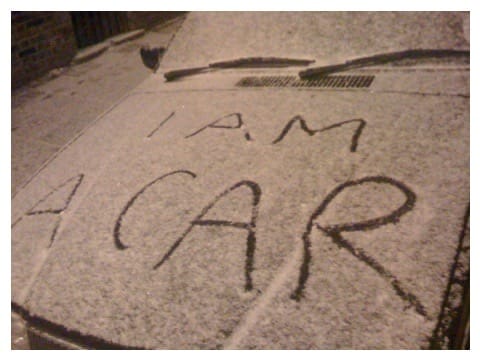Politics vs poetics and fact vs truth
A post-fact era sounds like a pretty scary thing. It can be. And, if many people are living with a difficult truth and you’re a ruling…
A post-fact era sounds like a pretty scary thing. It can be. And, if many people are living with a difficult truth and you’re a ruling force that isn’t challenging it efficiently, it really should be.
For a long time, politicians have used facts to outmanoueuvre people for whom the truth felt really quite different. I’ve been to enough formal debates to see how one person makes it almost impossible to fairly vote against them, simply because they have created an elegantly logical argument against the proposition.
Politicians, in interviews, the media, parliament and all over the place, make a habit of this every day. You talk around the question, “it’s just an invitation to speak”, bring up facts from dossiers you commissioned for just such a case or draw on your briefing notes. And technically, the facts point a certain way.
But a real person, living out in society, who perhaps didn’t spend years at law school or public school, senses and feels a certain truth. For a long time, they tended to feel as if they were relatively alone and impotent in that position. Then social media happened.
There are now enormous communities who can compare notes and feel a solidarity about a certain, more poetic truth to their situation.
The richest are getting richer while they are losing their jobs. They’re told to vote for David Cameron, with him painted up like Obama, and then face the most awful austerity cuts in recent memory. How are they even supposed to continue trusting the likes of The Sun, with that cognitive clash?
I think back to my English studies, and it reminds me of poetry. There’s something in the use of language through poetry that evokes a truth, without using facts.
To many Americans, Trump was a poet in this sense. He said things that resonated with their reality in a way that just rolling out facts cannot achieve.
When we talk about doubling down on facts and fact-checking to combat this approach, I believe we miss a bigger problem.
To turn this around, we need to find a greater truth and stick to it. And when in power, need to demonstrably implement it in line with what was promised.
Matching the reality, with all its difficulties and messiness, to the truth we all aspire to and promise is easier said than done. But demonstrating the pursuit of that philosophy should be a non-negotiable path to weather the ups and downs of the next few years.
This is what I think the Lib Dems might be succeeding toward in a way. Their truth has remained consistent in my eyes — just look at Nick Clegg’s leading speech and position since.
Many can’t forgive them for the tuition fees situation. But they have to ask themselves this question: do you think it was the Lib Dems who made those changes or was it the Tories. If the Lib Dems could have stopped it happening, why wouldn’t they? Especially given this backlash, which they would have known was coming.
I have an admission to make. I’ve been very lucky to write for various publications over the years, and be paid to do so. But I’d never call myself a journalist — I’m a commentator. I barely quote anyone, I barely reference any facts, I barely draw on evidence.
But I try to evoke a truth that I haven’t seen mentioned before. To me, that will always be more important. And I think that’s appearing to be true for more and more audiences than people previously realised.

